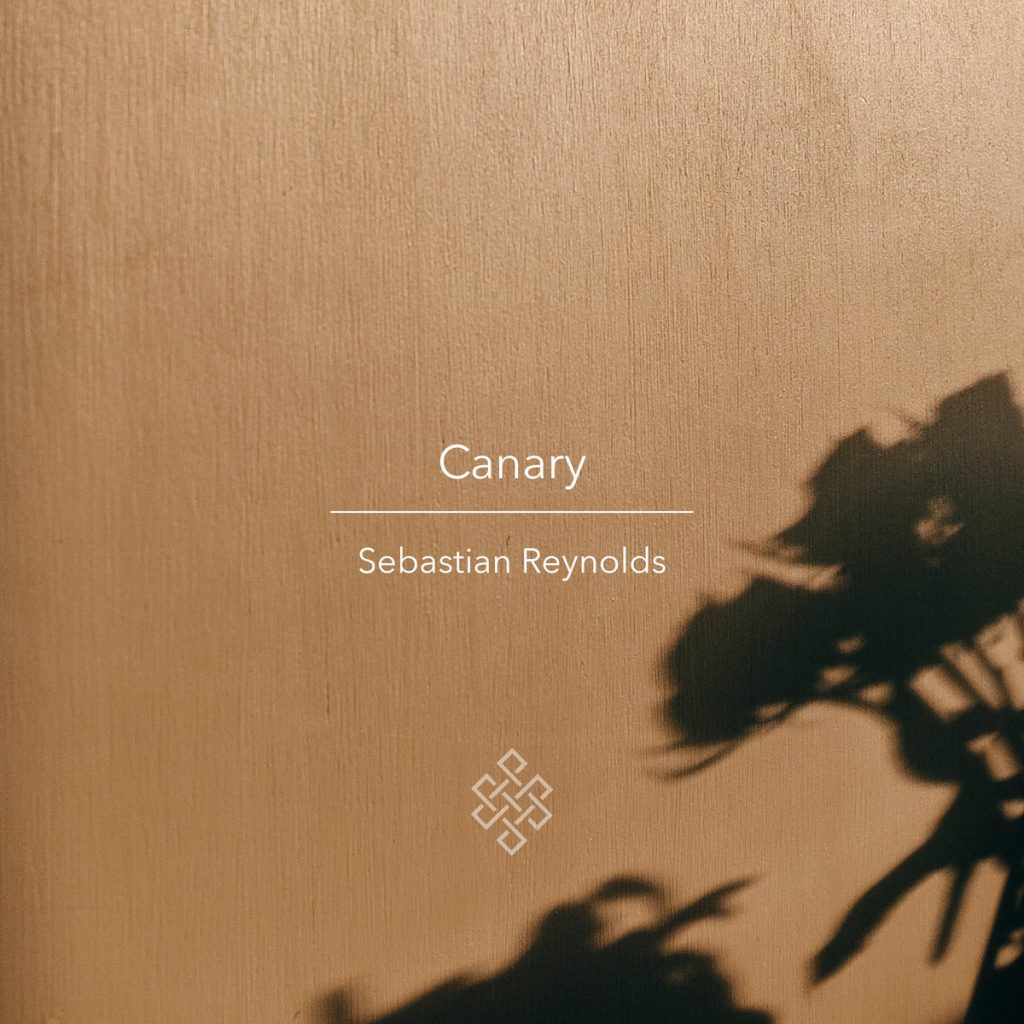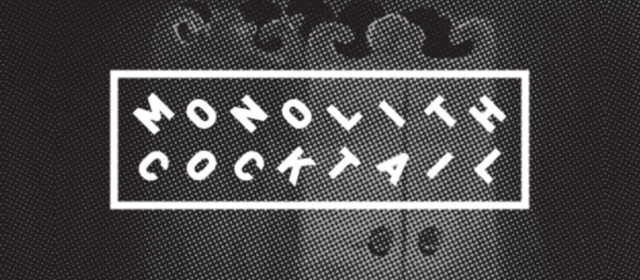SEBASTIAN REYNOLDS, “Canary” (PinDrop Records, 2023)

Dopo quella che sembra un’eternità, e con una prolifica serie di progetti, collaborazioni e pubblicazioni di EP alle spalle, Sebastian Reynolds presenta finalmente il suo album di debutto da solista. D’altronde, il musicista, artista, produttore, remixer, PR e boss di un’etichetta si è dato da fare: sia a livello creativo che privato.
Una rapida scorsa al curriculum dal 2017 rivela due impressionanti volumi di musica elettronica da camera con l’Anglo-German Solo Collective (un trio che comprendeva la virtuosa violoncellista Anne Müller insieme al collaboratore di lunga data di Reynolds, il violinista, star della musica elettronica Alex Stolze, che fa diverse apparizioni in questo album); il dramma multimediale Maṇīmekhalā, ispirato ai testi Jataka, danzato e musicato con una serie di collaboratori, tra cui la compagnia Neon Dance, il corografo Pichet Klunchun e il Jongkraben Ensemble; la serie di EP cerebrali The Universe Remembers, Nihilism Is Pointless e Crows; e l’EP “Athletics”, ispirato alla corsa su lunga distanza (una passione sportiva per Reynolds, che è un discreto corridore amatoriale e un concorrente a tutti gli effetti). Senza considerare tutti i suoi compiti di produzione e remix, o le sue varie partecipazioni ad altri gruppi. E come sentirete nell’album “Canary” di auspici e preveggenze, c’è stato molto da elaborare da una vita privata di perdita, ma anche di gioia.
Si potrebbe dire che tutto questo è stato incanalato nell’arazzo sonoro di questa dichiarazione ampliata: il dolore per la perdita della madre e del bambino Noah, lo studio del buddismo e delle pratiche di meditazione e la ricerca di realizzazione e razionalità in un mondo sempre più ostile di auto-assorbimento, di convalida vacua, di non impegno e di autocommiserazione.
Trovando molto materiale di esempio nell’industria dell’auto-aiuto dei podcast (personalmente trovo l’intero mezzo noioso e uno dei peggiori modi di comunicare) e dell’analisi infinita (ne ho già abbastanza), l’album “Canary” (come nel famosa figura retorica dell’avvertimento del “canarino nella miniera di carbone”) di Reynolds è in parte un manuale di consulenza, in parte un incoraggiamento alla trascendenza, in parte cerebrale e in parte una gestione del lutto. Mentre Akira The Don si è servito di Jordon Peterson, Reynolds avvolge il mantra dell’attualizzazione “quando le cose si fanno pazze, non diventarlo anche tu” dell’ex Navy SEAL, combattente in Iraq, diventato autore e podcaster, Jocko Willink, in vapori ondulati, psy-trance e vortici d’ambiente simili a quelli degli Orb. L’autore di “Extreme Ownership” propone un approccio più responsabile per affrontare qualsiasi cosa la vita ci offra; in un certo senso, l’esatto opposto del metodo terapeutico confessionale che pone l’individuo davanti e al di sopra di ogni altro. E poi c’è Carl Jung, le cui astrazioni quantificate della coscienza e del suo rapporto con la realtà compaiono nell’iniziale “Sleeping Meadow”, un crossover fluttuante di musica dance post-punk, FSOL, 808 State e Yann Tierson.
Certamente un pensatore, Reynolds intreccia la sua inclinazione per le ricerche e le curiosità filosofiche, sia scientifiche che spirituali – si veda il tema ricorrente dei riferimenti alla liturgia buddista di cui è disseminato l’album. I più moderni scienziati studiosi di podcast seriali, Sam Harris e Lex Fridman, appaiono sulla lingua Pali (la lingua tradizionale delle scritture buddiste Theravada) intitolata “Viññāna”. Una conversazione sulla “natura della mente” e della “coscienza” viene sollevata e dotata di un’adeguata atmosfera orientale e di un tocco di Vangelis, Boards Of Canada e Black Dog; un’immersione vivace di tablas in una lenta marcia verso il mistero.
Nello stesso ambito, “Temple Gong” suscita altre vibrazioni buddiste con i suoi sventolii di bambù simili a mallet di gamelan e serraglio orientale; e la suite in due parti “Vimutti”, che vede la presenza del già citato Stolze al violino da camera e tocchi sperimentali più vaporosi (che si fondono con la sintesi), è la colonna sonora cinematografica di un ritiro miracoloso di lavaggi avvolgenti, Ajay Saggar e Jóhann Jóhannsson.
Il tema del lutto e del periodo di elaborazione dello shock iniziale per la scomparsa di un familiare, l’accettazione finale e le strategie di coping necessarie sono oggetto di numerose tracce. L’atmosfera ambientale, il piano soffuso, l’imbottitura ovattata e il profondo tuffo nella morte e nei ricordi di “Shortest Day” piangono la perdita della madre di Reynolds, scomparsa nell’estate del 2016. Mentre la luce stagionale e metaforica si affievolisce, questo pezzo improvvisato si rivela un sottile auspicio, registrato tre anni prima che la madre, ingegnere informatico, morisse; la sua voce confortante, ora molto rimpianta, è appena udibile nelle ultime sfumature e vapori del brano. Cresciuto circondato da apparecchiature elettroniche e computer ormai defunti e nostalgici – gli oggetti, gli apparecchi e gli strumenti accumulati dalla madre che costruiva computer per la Research Machines -, Reynolds è sempre stato destinato a intraprendere un percorso nella musica elettronica, sintetizzata e computerizzata, a quanto pare.
Tragicamente, Reynolds e la sua compagna Adrienne hanno perso il loro bambino Noah nel luglio del 2020. Tutto il dolore e le domande che un evento così incomprensibile può manifestare sono incanalati nel pianto, nel dolore e nell’emozione di “Fetus”. Immersa in una commovente partitura elettronica di droni di violoncello pianeggianti e approfonditi alla McCorry e Jed Kurzel (per gentile concessione di Jonathan Ouin), fischi più acuti e sottili accenni di mistici gong gamelan, ciotole che vibrano, una vita viene persa e ricordata in una suite sonora astratta.
Il finale, “The After Life”, è più incentrato sull’accettazione; il destino che a un certo punto viene promesso a tutti noi. L’atmosfera è più scintillante, infantile e stellare, come il treno trance-tibetano dei Banco de Gaia che si muove nella foresta magica dei fiati di Prokofiev. Una liberazione, una sorta di conforto, la prossima incarnazione che ti aspetta se sei uno studente di Buddha.
Ma torniamo ancora una volta ai temi che caratterizzano “Canary”; il brano che dà il titolo al disco contiene un discorso di JFK, il martire dei sogni delle teorie cospirative incrociate e multistrato di tutto il mondo. Il discorso si inserisce nella teoria della terza, quarta e quinta colonna della paranoia (il che non significa che non vogliano prenderti!), con le sue parole profetiche sulle società segrete (lo Stato segreto) e l’occultamento e la natura sinistra di tali cabale che hanno segnato il suo destino. Naturalmente è circostanziale, il cibo dei podcast, dell’alt-right e dell’alt-left, ma c’è una verità essenziale nell’operare in trasparenza, con informazioni aperte a tutti i cittadini. Purtroppo, negli ultimi tempi, la tracotanza e la crescente invasione di forme ostili di autoritarismo si sono diffuse in modo inquietante e con facilità. Ogni forma di vera democrazia è alle corde, battuta da ogni parte. In una trance quasi fantascientifica di misticismo africano velato di umorismo (con un tocco di vibrazioni etiopi) e un tamburo a mano o un telaio lento, il monologo del presidente presto assassinato viene lasciato assorbire come un sagace presagio fatalista: roba da brividi.
L’esperienza e la musicologia di quasi una vita sono chiamate in causa per un amalgama per lo più sofisticato e sottile di elettroacustica, trance, EDM, musica elettronica da camera, ambient techno e colonne sonore in un album che attinge a tutte le passioni e ai fili emotivi di Reynolds. Guida di auto-aiuto con i neuroni accesi e la mente aperta, “Canary” contrappone la diffidenza allo stupore, l’allarme alla razionalità e all’ottimismo. C’è voluto un po’ di tempo per arrivare, ma il debutto di Reynolds, un album espanso di pensieri e idee, è una matura dichiarazione di qualità.
(Dominic Valvona)
ENGLISH VERSION
After what seems like an age, and with a prolific string of projects, collaborations and EP releases behind him, Sebastian Reynolds finally unveils his debut solo album. Then again, the musician, artist, producer, remixer, PR and label boss has been busy: both creatively and privately.
A quick run-through of the CV since 2017 reveals two impressive volumes of electronic-chamber music with the Anglo-German Solo Collective (a trio that included the virtuoso cellist Anne Müller alongside Reynolds’ longtime foil, the violinist, electronic music star Alex Stolze, who makes several appearances on this album); the multimedia Jataka texts inspired Maṇīmekhalā dance and musical scored drama with a host of collaborators, including the Neon Dance company, chorographer Pichet Klunchun and The Jongkraben Ensemble; The Universe Remembers, Nihilism Is Pointless and Crows run of cerebral EPs; and the long distance running inspired Athletics EP (a sporting passion for Reynolds, who’s a pretty decent amateur runner and contender in his own right). That’s without taking into account all his production and remixing duties, or his various stints in other groups. And as you will hear on the Canary album of augurs and forewarnings, there’s been much to process from a private life of loss: but joy too.
You could say this has all been channeled into the sonic tapestry of this expanded statement: the grief of losing his mother and baby, Noah; a study of Buddhism and meditation practices; and quest for realisation and rationality in an increasingly hostile world of self-absorption, vacuous validation, the non-committal and self pity.
Finding plenty of sample material from the self-help industry of podcasts (personally I find the whole medium tedious, and one of the very worse ways of communication) and endless analysis (enough already), Reynolds’ Canary (as in the famous trope of the ‘canary in the coal mine’ warning) album is part counselling manual, part encouraging transcendence, part cerebral, and part grief management. And whereas Akira The Don used Jordon Peterson, Reynolds envelopes the “when things get crazy, don’t get crazy too” actualisation mantra of the former Navy SEAL, Iraq combatant turn author and podcaster Jocko Willink in wavy vapours, psy-trance and Orb-like wafts of ambience. The author of Extreme Ownership peddles a more responsible approach to coping with whatever life throws at you; in a fashion, the very opposite of the confessional therapeutic method that puts the individual before and above every one else. And then there’s Carl Jung, who’s quantified abstracts of the consciousness and its relation to reality crops up on the opening oboe-fluted-melodica vaped ‘Sleeping Meadow’; a floated crossover of post-punk dance music, FSOL, 808 State and Yann Tierson.
Certainly a thinker, Reynolds weaves his penchant for such philosophical enquires and curiosities, both scientific and spiritual – see the repeating theme of Buddhist liturgy references suffused throughout the album. The more modern scientist scholars of serial podcasts, Sam Harris and Lex Fridman, appear on the Pali language (the traditional language of the Theravada Buddhist scriptures) entitled ‘Viññāna’. A conversation on the “nature of mind” and “consciousness” is lifted and given a suitable Eastern feel and touch of Vangelis, Boards Of Canada and Black Dog; a buoyant dip of tablas on a slow march towards the mysterious.
In the same sphere, ‘Temple Gong’ stirs up more of those Buddhist vibes with its mallet-like bamboo flutters of gamelan and Eastern menagerie; and the two-part ‘Vimutti’ suite, which features the already mentioned Stolze on chamber violin woes and more wispy experimental touches (merging with the synthesised), is the filmic soundtrack to a mirage retreat of enveloping washes, Ajay Saggar and Jóhann Jóhannsson.
Circling back on grief and the process period of the initial shock at the passing of family members, the eventual acceptance and the coping strategies that are needed are aired on a number of tracks. The ambient wafted, faint piano dappled, muffled padded deep plunge into conveying death and memories themed ‘Shortest Day’ mourns the loss of Reynolds’ mother who passed away in the summer of 2016. As the seasonal and metaphorical light fades away, this improvisational bedded piece proves a subtle augur, recorded as it was three years before his computer engineer mother died; her, now much missed, comforting voice just about audible in the last wisps and vapours of the track. Growing up surrounded by now defunct, nostalgic electronic equipment and computers – the objects, apparatus and tools amassed by his mother who built computers for Research Machines -, Reynolds was always destined to pursue a pathway in electronic, synthesised and computerised music it seems.
Tragically, Reynolds and his partner Adrienne lost their baby Noah in the July of 2020. And all the sorrow and questions that such an incomprehensible event can manifest are channeled into the wept, hurt and ached emotionally charged ‘Fetus’. Submerged in a moving electronic score of McCorry and Jed Kurzel-like plaintive and deepened cello drones (courtesy of Jonathan Ouin), higher pitched whistles of a kind and subtle hints of mystical gamelan gongs, bowls being vibrated, a life is both missed and remembered in an abstract sonic suite.
The finale, ‘The After Life’, is more about acceptance; the fate we’re all promised at some point. The vibe is more twinkly, childlike and starry, like Banco de Gaia’s trance-Tibetan train chuffing through Prokofiev’s woodwind magical forest. A release, some kind of comfort, the next incarnation awaits if you’re a student of Buddha.
But back to the defining themes of Canary once more; the titular track of which features a speech by JFK – the dream martyr of interlocking, multilayered crisscrossing conspiracy theories the world over. It does feed into the whole third, fourth, fifth column of paranoia (which doesn’t mean they’re not out to get you!) theory, his prophetic words on secret societies (the secret state) and the concealment and sinister nature of such cabals sealing his fate. Of course it’s circumstantial, the food of podcasts, the alt-right and alt-left, but there’s some essential truth to operating in the light, with information open to all citizens. Unfortunately overreach and the increasing encroachment of hostile forms of authoritarianism have spread eerily and with ease in recent times. Any form of true democracy on the ropes; beaten black and blue from every direction. To a near sci-fi trance of moody veiled African mysticism (a touch of Ethiopian vibes about it) and a slow frame or hand drum, the soon-to-be assassinated president’s monologue is left to be absorbed like a sagacious fatalistic omen: spooky stuff indeed.
A near lifetime’s experience and musicology is called upon for a mostly sophisticated and subtle amalgamation of the electroacoustic, trance, EDM, electronic-chamber music, techno ambience and soundtracks on an album that draws on all of Reynolds passions and emotional threads. Self-help guidance with the neurons fired-up, the mind open, Canary counterpoints mistrust with wonderment, alarm with the rational and the optimistic. It has taken a while to arrive, but Reynolds debut expanded album of thoughts and ideas is a mature statement of quality.

The Monolith Cocktail è un blog indipendente con base a Glasgow, Scotland (UK).
Le ragioni della collaborazione tra Kalporz e The Monolith Cocktail puoi leggerle qui








